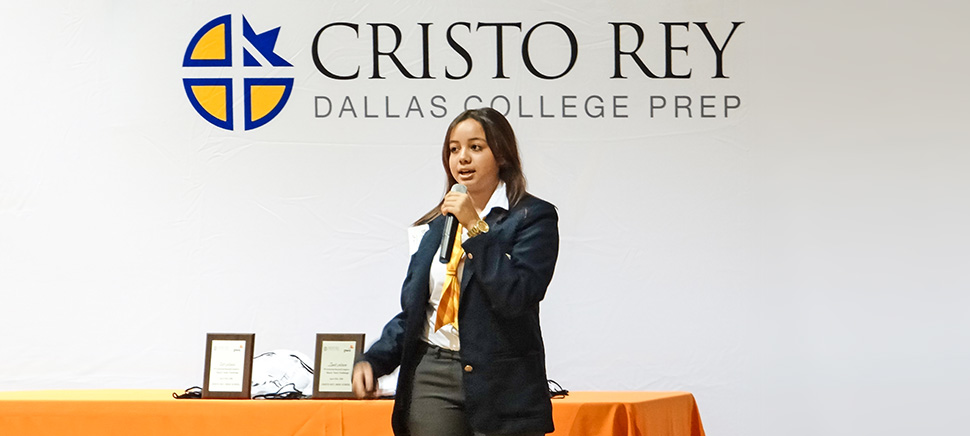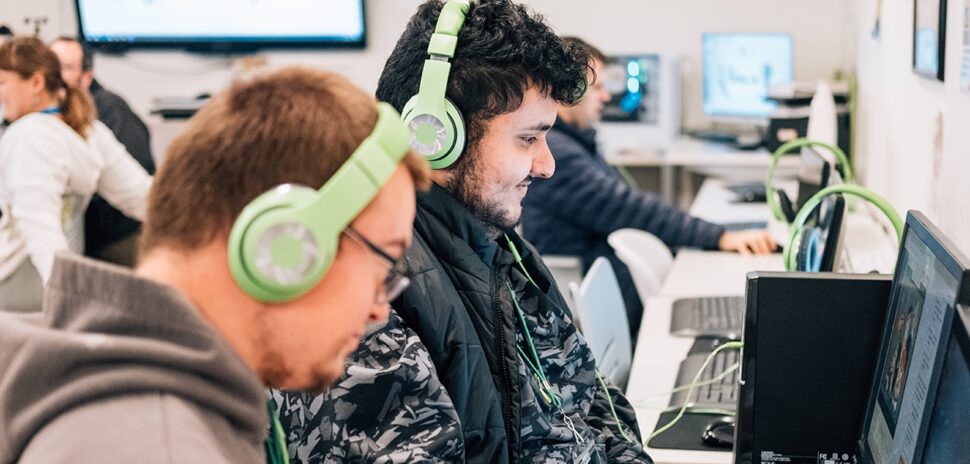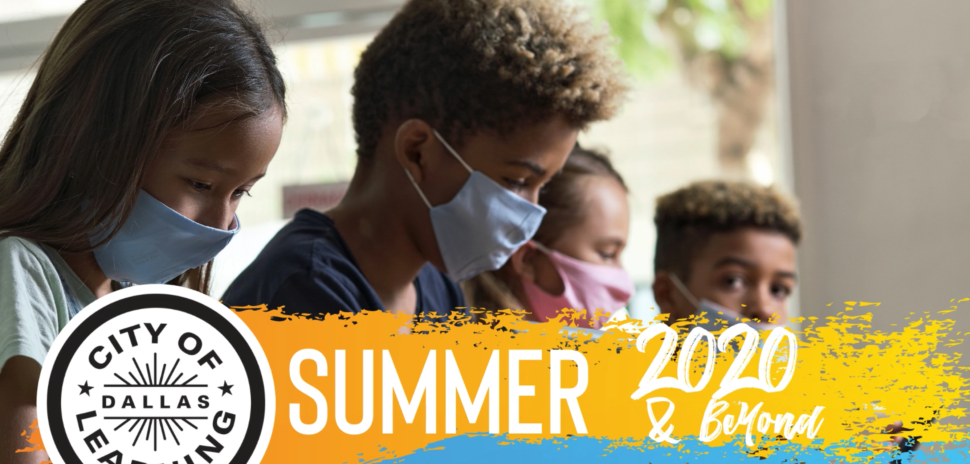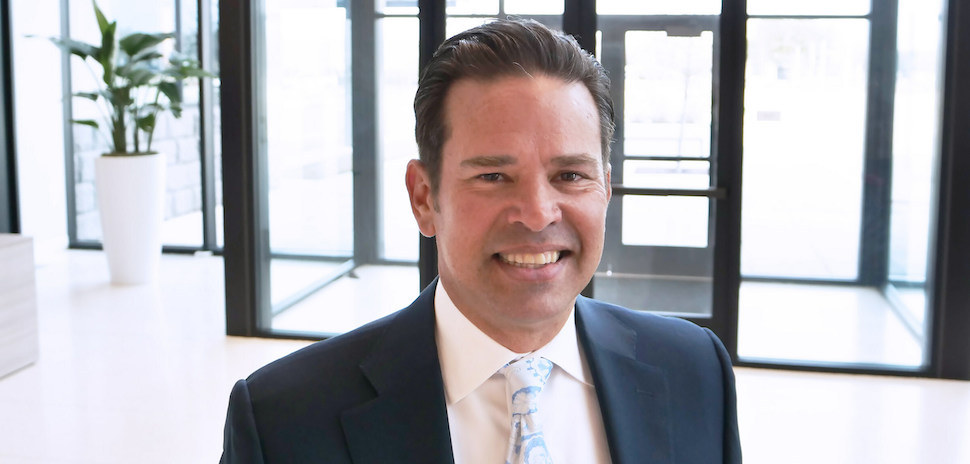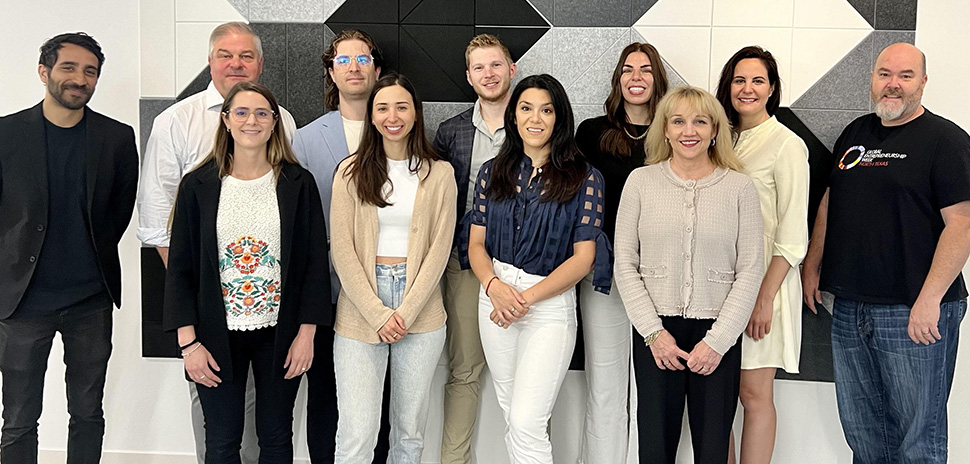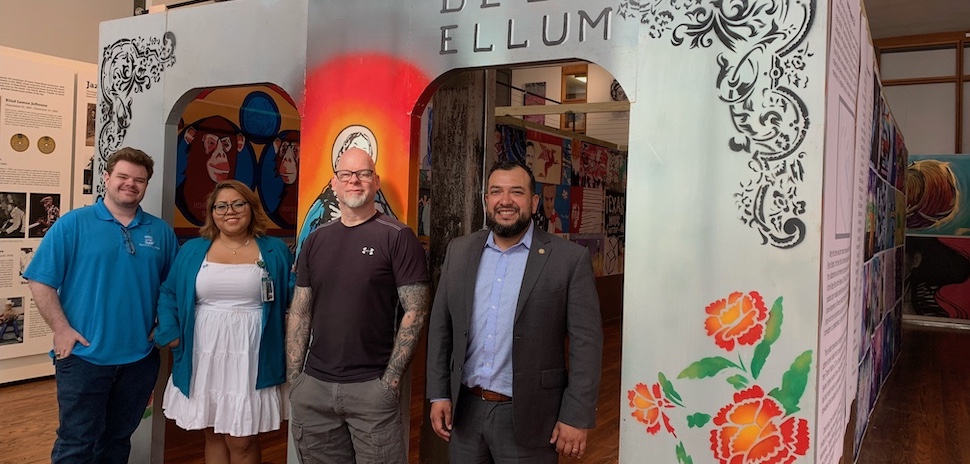PANEL OF JUDGES FROM PRICEWATERHOUSECOOPERS HEARS STUDENTS’ IDEAS
Twelve students at Cristo Rey Dallas College Preparatory School bravely got up in front of their classmates and teachers on April 15 and pitched their ideas, Shark Tank-style, to a panel of judges from multinational professional services firm PricewaterhouseCoopers (PwC).
There were ideas for a drive-thru panaderia, a cookie-delivery service, and a logo design business. One student dreamed up an idea for a watch that charges smartphones via Bluetooth.
A young man with a knack for building computers pitched an idea for a custom computer company with a 24-hour repair service. A young woman had an idea for a nonprofit that caters to the needs of people with disabilities.
Another student pitched a concept called “Club Sting”— a club targeting teenagers between the ages of 14 and 18 that would provide a safe place for them to dance, eat, and have fun.
“This was about positive risks—it was a scary thing for our students to do.” – Gunnar Rawlings
“This was about positive risks—it was a scary thing for our students to do,” said Gunnar Rawlings, director of the Cristo Rey Dallas corporate work study program. “We talk a lot about having a growth mentality. This was about our students doing something they didn’t have to do — there was really no incentive. They did it because of the environment we’ve created, and because of our students’ ability to take ownership of their education experiences.”
The competition was PwC North Texas’s National Advisory Earn Your Future project, in which professionals across the country help students develop financial and entrepreneurial skills.
CRISTO REY CLASS TEACHES PREPAREDNESS FOR MODERN WORKPLACE
The Cristo Rey Dallas students’ Shark Tank projects started in a class that teaches preparedness for the modern workplace.
The kids were asked to come up with a business idea, develop a model, and create a pitch. Then their classroom transformed into a marketplace, and students were given the opportunity to “invest” in their peers. The students who received the most “investment” were the ones picked to pitch their products to the panel of judges from PwC.
“Every PwC person at the event was amazed by how the students conducted themselves and how polished their responses were,” wrote Joel Francia, a tax associate with PwC who helped plan the Shark Tank event. “They engaged the audience, interacted with them, and even drew quite a few laughs. It was such a rewarding experience to hear about their dreams and their ambitions. They proved that no one has a monopoly of good ideas, and with hard work, especially in this country, anyone can make it.”
“They proved that no one has a monopoly of good ideas, and with hard work, especially in this country, anyone can make it.” – Joel Francia
Cristo Rey Dallas is in Pleasant Grove, a low-income area (55 percent of families earn $34,000 or less) with a primarily Hispanic and African-American population.
The school provides a corporate work study program, which mandates that students work one full day each week in a corporate job setting.
The school, which started up in 2015 with a class of more than 120 freshman, is part of the Cristo Rey network, which contains 30 similar schools in urban areas across the country.
It works like this: Students rotate out through the school week to spend time working at their corporate jobs, where they gain experience and “earn” their school tuition. Cristo Rey Dallas currently has 34 corporate partners (including PwC), which employ students in accounting, human resources, office services, IT, finance, and marking and business development jobs.
STUDENTS UNDERGO THREE-WEEK PROGRAM
Before the start of the school year, the students underwent a three-week program called Viva! Summer Institute, which provided entry-level business training and familiarized students with how to properly answer the phone, how to transfer a call, and how to use common business applications.
For the participating students, the Shark Tank challenge was an opportunity to showcase their innovations and challenge themselves. Ryan, the student with the nightclub-for-teens idea, was awarded first place. Andrew, the computer whiz who pitched a computer-building concept, took second. And Gemma, whose concept aimed to provide services and recreation for people with disabilities, took third.
“We have high expectations,” Rawlings said. “When you create an environment that’s caring and loving and safe, and you push the kids and give them the tools they need, they’ll pick the tools up and own it. We talk a lot about personal responsibility and ownership, and the students have done a great job of this.”
For a daily dose of what’s new and next in Dallas-Fort Worth innovation, subscribe to our Dallas Innovates e-newsletter.










